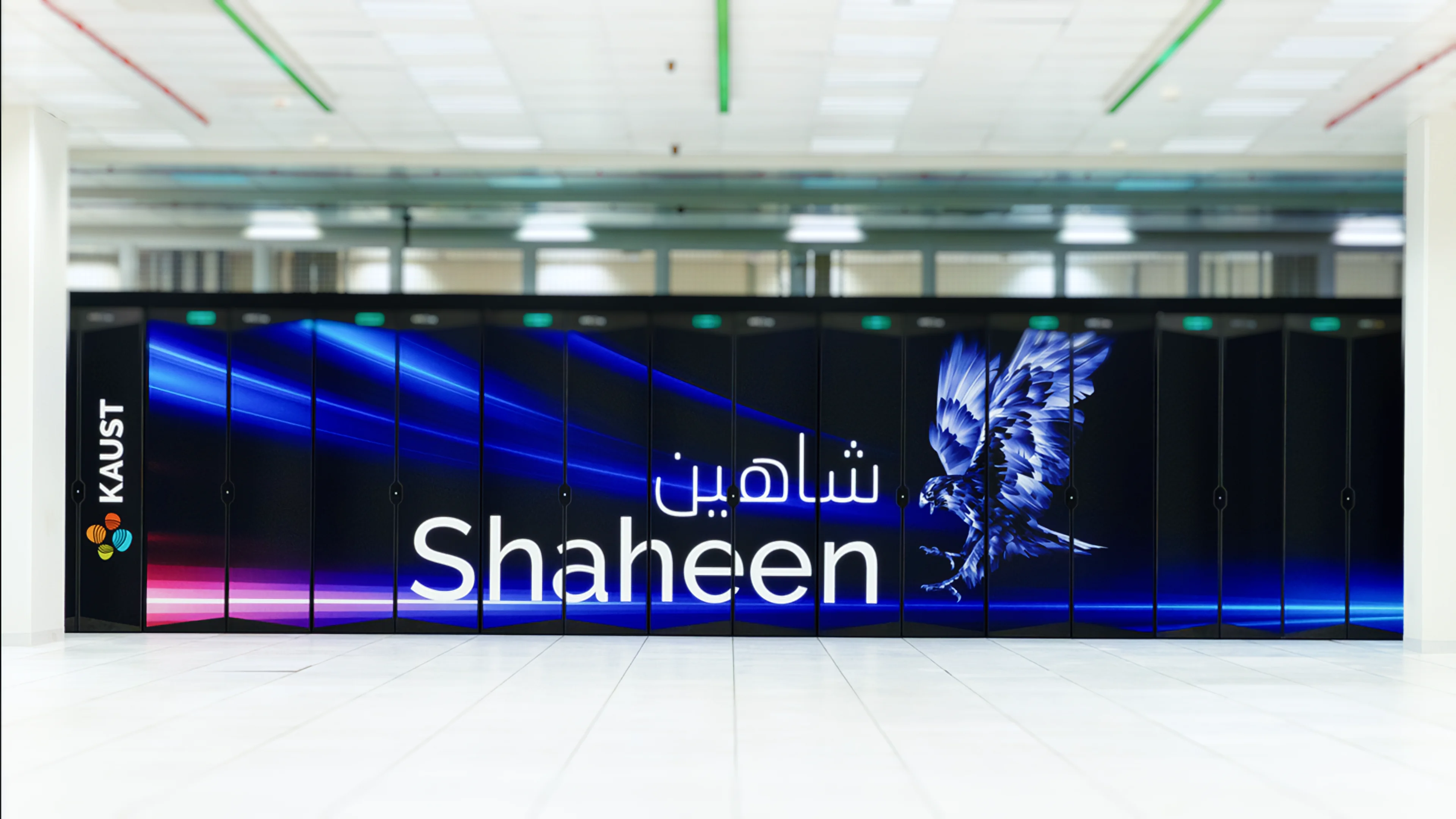
Extreme Computing Research Center
The Extreme Computing Research Center (ECRC) enables diverse campaigns in science and engineering to migrate effectively (in terms of human productivity) and efficiently (in terms of hardware utilization and power consumption) to the continually expanding frontier of computing performance, enabling discovery on many fronts. It creates algorithms and develops software to harness the exponentially increasing power of computer architecture for predictive simulation, data analytics and machine learning.
About the Extreme Computing Research Center
The ECRC is best understood in terms of the “hourglass model” of software: many diverse scientific applications (the top of the hourglass) are enabled to run with high performance on many diverse computer architectures (the foundation of the hourglass) through a standard interface (the narrow waist) implemented as software libraries that aim to hide as much of the architecture’s complexity as possible. The ECRC has created and curates some critical components of the world’s software infrastructure, particularly in linear algebra, partial differential equations and statistics. These components are ported to new processor architectures as they emerge, enabling new simulation and data analytics applications to exploit them.

Achievement Highlights
2022 Gordon Bell Prize Finalist
Our 2022 Gordon Bell Prize finalist, the ExoGeoStat project, employed the Fugaku supercomputer to advance climate prediction accuracy and efficiency. By integrating spatial statistics with high-performance computing, ExoGeoStat processes weather data from 10 million locations within 90 minutes, a dramatic reduction from the previous 18-hour models. This project represents a significant step forward in predictive climate modeling, contributing to faster and more precise forecasts of wind, temperature, and rainfall patterns.
2023 Gordon Bell Prize Finalist
Our 2023 Gordon Bell Prize finalist paper demonstrated the Cerebras CS-2 wafer-scale engine, a special-purpose processor that relies only on fast SRAM memory (without DRAM) designed for training neural networks, to be competitive with the world’s leading supercomputer for seismic processing (achieving 30% greater memory bandwidth on a bandwidth-limited computation).
2024 Gordon Bell Prize Finalist
Our 2024 Gordon Bell Prize finalist work introduces an exascale climate emulator capable of generating global hourly temperature projections at a spatial resolution of 3 km. Running on the NVIDIA GH200, the emulator sustains a performance of 1 Eflops/s, simulating surface temperatures for 55 million locations and producing 482 billion data points annually.
Advancing Software and Algorithms for Modern Computing Challenges
The ECRC’s role becomes more significant as architectures evolve under the premium of energy efficiency to become task-specialized, presenting a host of heterogeneous resources in processor, memory, and network components.
As a key contributor to the field, the ECRC is a source of widely distributed software for implementing algorithms of optimal or near-optimal complexity. Such algorithms generally exploit a hierarchy of scales, including multigrid, fast multipole, hierarchical low-rank matrices, and hierarchical coarsenings of graphs. The ECRC also focuses on randomization-based algorithms, such as stochastic gradient descent in machine learning and algorithms based on randomized subspace selection in linear algebra, which, with a given probability, deliver a result of a specified accuracy at a lower cost than their deterministic equivalents. Our algorithms make use of the mathematics of 'data sparsity' and architecture-specific instruction-level concurrency. They also aim to reduce communication and synchronization, the latter being much more expensive in copper than operations on data available in caches and registers in silicon
Global Reach and Partnerships
Beyond software development, the ECRC plays a significant role in technology translation, collaborating with leading system vendors such as HPE-Cray, Fujitsu, and NEC; major processor vendors like AMD, ARM, Intel, NVIDIA, Cerebras, and Graphcore; renowned software developers such as NFEM, PETSc, and OpenFOAM; and key industrial players, including Aramco and McLaren. It also trains students and postdocs for the rapidly expanding workforce in simulation and big data analytics. Most alumni are placed internationally, where supercomputing powers are concentrated, while some are recruited to build high-performance computing in the Kingdom, such as at Aramco, Boeing, NEOM, and various universities.
The ECRC vision aligns with the “Economies of the Future” pillar of RDIA’s strategic plan.

Research Focus Areas
- Scalable linear and nonlinear algebraic solvers
- Scalable partial differential equation solvers
- Scalable analyses and emulations in geospatial statistics
- Scalable graph algorithms
- Energy and time-efficient neural network training and inference
- Large language models
- Numerical libraries for emerging architectures
- Aerodynamics
- Weather and climate modeling and simulation
- Porous media modeling and simulation
- Seismic processing
- Optimization
- Genomics
- Adaptive optics
- Wireless signal decoding
Selected Publications
- Capturing Complex Genetic Architectures from Genome-Wide Association Studies Using Mixed Precision Kernel Ridge Regression, H. Ltaief, R. Alomairy, J. Ren, Q. Cao, L. Slim, S. Bougouffa, R. Abdelkhalek, D. Ruau, & D. Keyes, 2024, to appear in Proceedings of the International Conference for High Performance Computing, Networking, Storage, and Analysis (SC’24), ACM (Gordon Bell Finalist).
- Boosting Earth System Model Outputs and Saving PetaBytes in their Storage using Exascale Climate Emulators, S. Abdulah, A. Baker, G. Bosilca, Q. Cao, S. Castruccio, M G. Genton, D. E. Keyes, Z. Khalid, H. Ltaief, Y. Song, G. Stenchikov & Y. Sun, 2024, to appear in Proceedings of the International Conference for High Performance Computing, Networking, Storage, and Analysis (SC’24), ACM (Gordon Bell Finalist).
- Scaling the “Memory Wall” for Multi-Dimensional Seismic Processing with Algebraic Compression on Cerebras CS-2 Systems, H. Ltaief, Y. Hong, L. Wilson, M. Jacquelin, M. Ravasi & D. Keyes, 2023, in Proceedings of the International Conference for High Performance Computing, Networking, Storage, and Analysis (SC’23), ACM (Gordon Bell Finalist), doi 0.1145/3581784.3627042.
- Reshaping Geostatistical Modeling and Prediction for Extreme-Scale Environmental Applications, Q. Cao, S. Abdulah, R. Alomairy, Y. Pei, P. Nag, G. Bosilca, J. Dongarra, M. G. Genton, D. E. Keyes, H. Ltaief & Y. Sun, 2022, in proceedings of the International Conference for High Performance Computing, Networking, Storage, and Analysis (SC’22), IEEE Computer Society (ACM Gordon Bell Finalist) pp. 13-24, doi 10.1109/SC41404.2022.00007.













